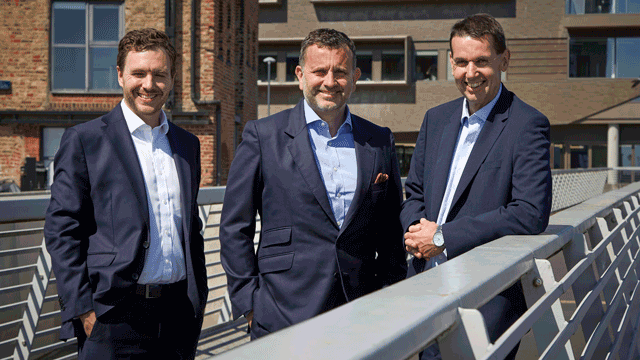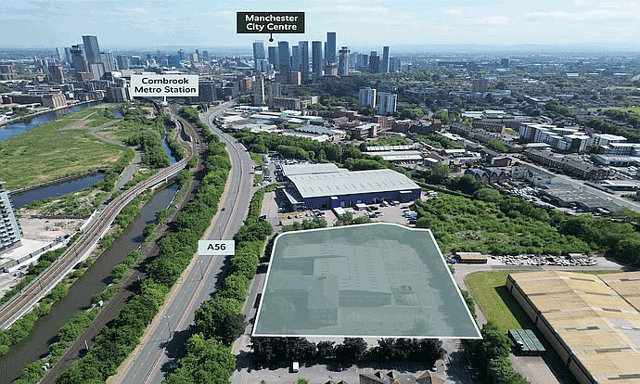The Sheffield city region will pull together a group of diverse districts to elect a mayor and wield devolved power. Projects such as the New Retail Quarter will depend on the success of the venture

Paul Sargent is waiting patiently for the day when everyone misunderstands. He is pretty sure it can’t be far off.
Sargent, chief executive and founder of Queensbury Real Estate, is one of the three bidders hoping to take charge of Sheffield’s 900,000 sq ft New Retail Quarter development, the scheme intended to replace Hammerson’s £500m Sevenstone project, which was abandoned in 2013.
The misunderstanding he is waiting for is about politics: in May 2017 the Sheffield city region will have its first directly elected mayor. Sargent says the New Retail Quarter, due before 2020, will be hailed as the mayor’s first big success. But it won’t be.
Sargent – like many others in south Yorkshire and north Derbyshire – is watching and waiting to see what the city region’s devolution package really means. Clear-eyed realists, of whom Sargent is definitely one, hope for much, but expect a little less. They are prepared to see plenty of regeneration “victories” chalked up to the mayor, victories which, on closer examination, could be nothing of the kind.
Yet Sargent is no enemy of devolution, far from it. He is an enthusiast and expects it to deliver for Sheffield – even if he wonders how well a devolution model devised for Manchester can work in the more diverse districts of south Yorkshire and north Derbyshire.
Unlike the Manchester districts, which have a 30-year history of co-operation and pulling together, in the Sheffield
city region working together for the common regional good is still relatively new. While nobody in Trafford or Stockport worries about being called Greater Manchester, people in Barnsley will not enjoy being told they live in Greater Sheffield.
“The New Retail Quarter will be described as the first asset to show that devolution worked, the first tangible asset coming out of devolution – even though the development is happening anyway,” says Sargent.
Queensbury believes the long-stalled retail redevelopment will complete this time around. “There is demand for new retail floorspace in Sheffield city centre for a quality offer and redevelopment is more achievable now than at any time before,” says Sargent.
Unlike some in Sheffield, he does not blame the council for the failure to get a new retail scheme out of the ground. He blames developers.
“The old scheme was too large, too ambitious on rents, not viable if you looked closely. Schemes like that depended on a significant yield shift before you could start construction, and the process of developing took so long that by the time anyone was ready to build, the economic cycle had already gone. The council was an innocent bystander,” he says.
A new city region mayor could make a difference – although Sargent believes possibly not to the new retail quarter. “It will be good to know that the people you are talking to in Sheffield are the people who make the decisions. But the devolution deals will only be as good as the people who make the decisions. That said, our £480m scheme will overtake the individuals involved – and we will indirectly benefit from devolution,” he says.
For now, there are more questions than answers about devolution. Stephen Miles, director in Cushman & Wakefield’s development team, says: “A key question for me is how the public and private sector partners will use the benefit of these deals to deliver more development on the ground.” He hopes for more close collaboration between the public and private sector – the kind that has developed Markham Vale and Rotherham’s Advanced Manufacturing Park, for example. Other market observers hint that there may be too much reliance on the public sector.
In the end, it depends on people. Those tipped as potential mayors include former Labour sports minister Richard Caborn, former Labour cabinet minister and Doncaster MP Caroline Flint, and Sir Stephen Houghton, Labour leader of Barnsley council and – for now – chair of the South Yorkshire Combined Authority, the body that morphs into the new regional government in 2017.
At present, Yorkshire public opinion is divided about the impact of the mayor on the retail plans. Data collected by Ipsos MORI, the New Local Government Network and PwC shows that 54% of Yorkshire people approve of the New Retail Quarter proposals, but only 24% are optimistic that it will achieve its aim. Just 13% said an elected mayor would increase their faith in the plan.
Come 2020, and the opening of the new Sheffield retail quarter, the first city region mayor will be nearing the end of his or her four-year term of office. With an election looming, the mayor may need strong self control to avoid claiming responsibility for all the good things that have happened since 2017. Will these include the Sheffield retail redevelopment? If it has been built by then – and it is still a big if – the answer has to be yes.
Devo max?
Sheffield sits at the centre of a devolved regional government for Barnsley, Bassetlaw, Bolsover, Chesterfield, Derbyshire Dales, Doncaster, north-east Derbyshire, Rotherham and Sheffield. A city region mayor, elected in 2017, will chair a regional authority with an extra £30m a year to spend on local growth projects. They will also control transport and planning. On 28 October ministers dismissed calls from the Yorkshire Devolution Movement for a Yorkshire-wide package. Some argue Yorkshire loyalty has the power to trump local loyalties in a way the county’s city regions cannot. However, the Sheffield deal makes a Yorkshire-wide devolution plan impossible, says the Treasury.
Fresh start on retail plans
Queensberry is competing with Lend Lease and Aspire Development Management to become Sheffield city council’s partner on the £480m New Retail Quarter development.
A selection is due by March 2016. Planning applications are already in for the site bounded by Chester Square, Pinstone Street and Barkers Pool. The winner will be expected to get to work promptly and a 2020 completion date is anticipated.
Some fear the new shopping centre will simply move retailers from smaller units elsewhere in the town.
Steve Henderson, retail director at Savills, says: “The Fargate Centre may see a couple of big retailers depart for the new centre but should retain most. The Moor is likely to feel the biggest pinch in terms of retailers departing in favour of the new scheme.”
Queensberry’s Paul Sargent says he expects 50-55% of the retail floorspace to be occupied by retailers new to Sheffield. “We are not looking at desertification of the city’s existing retail pitch,” he says.
In the meantime, the city’s current retail scene is blighted by the uncertainty surrounding future retail development.
“Retailers are asking why they would run a shop in the Moor or Fargate if they do not know what is happening in the city. Retailers won’t commit until they know, which means when new leases are signed they are shorter,” says Henderson.










